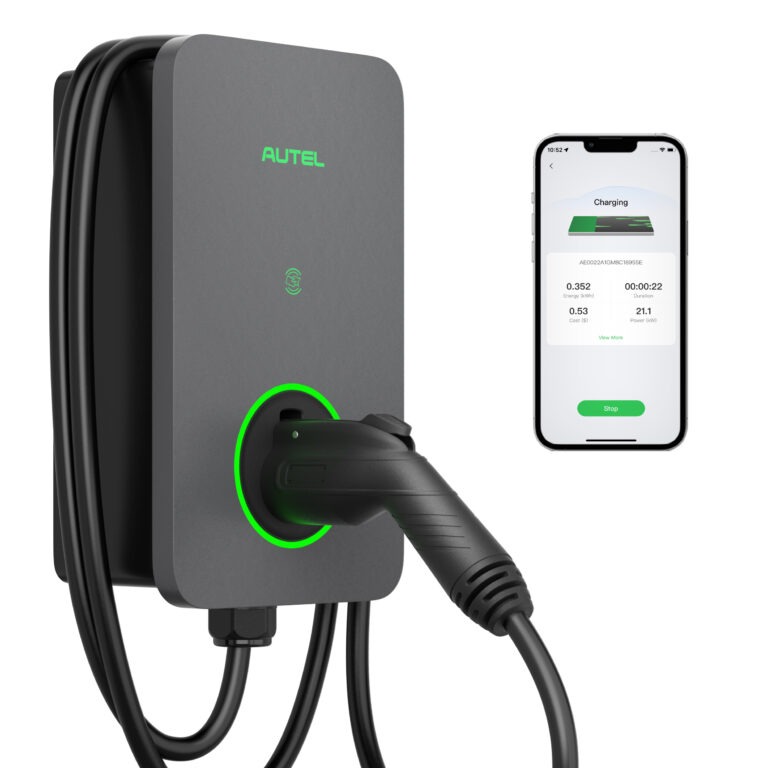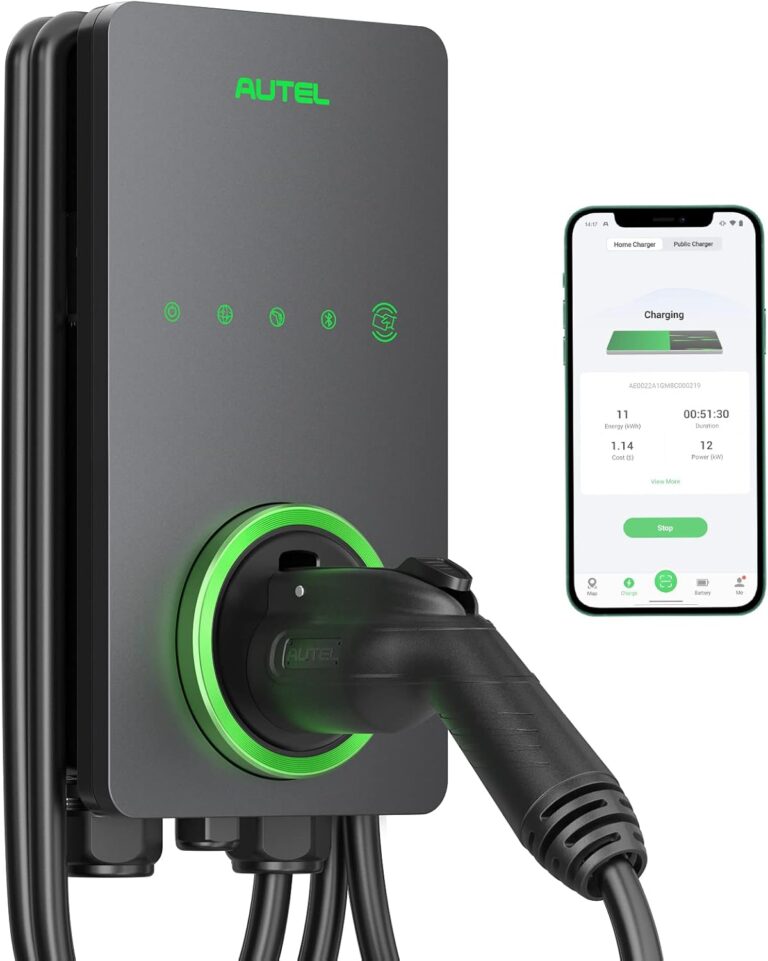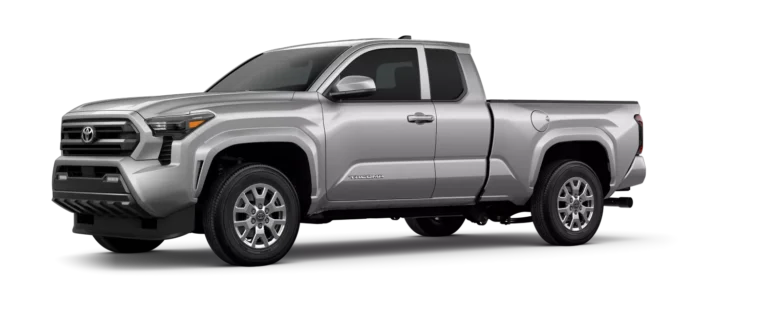
Toyota RAV4 vs Honda CR-V vs Mazda CX-50
Compare models, trims, specifications, features, prices, engines and more for the Toyota RAV4, Honda CR-V and Mazda CX-50
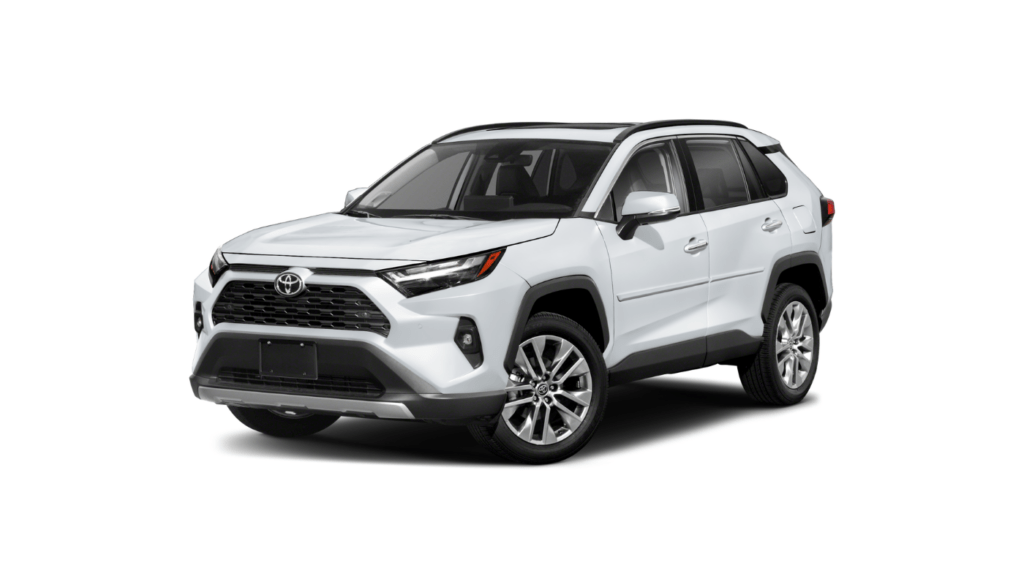
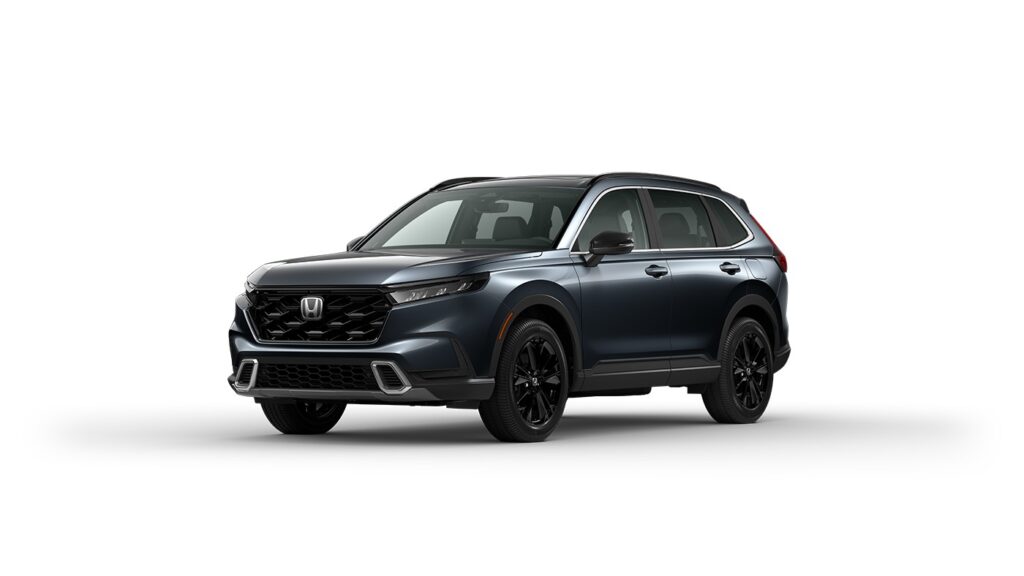
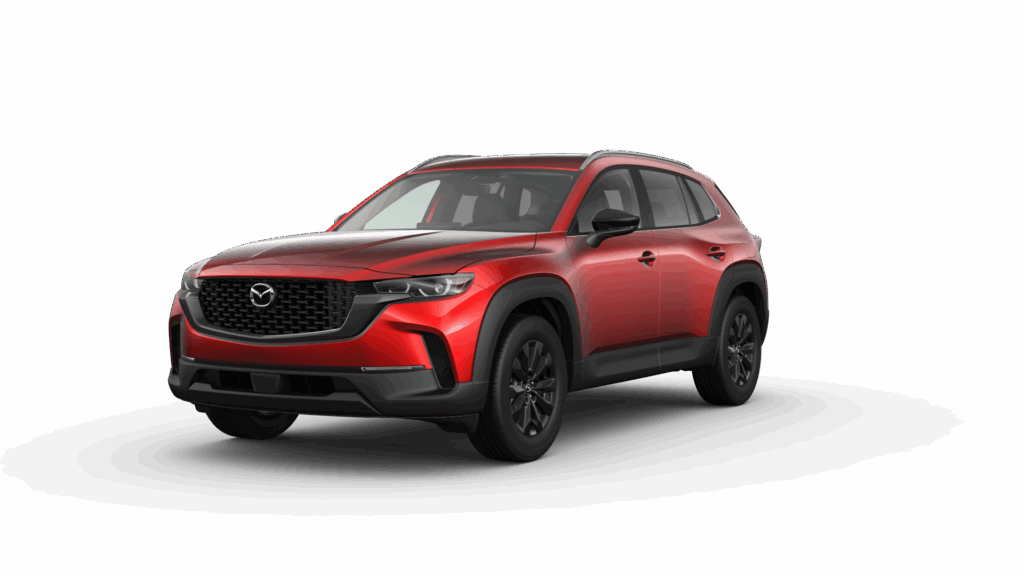
Our Comparison Will Cover:
Exterior and Interior Dimensions
Design and Exterior Styling
Interior Comfort and Space
Technology and Infotainment
Performance and Handling
Safety Features and Driver Assistance
Fuel Efficiency and Hybrid Options
Trim Levels and Pricing
Reliability and Maintenance
Maintenance, Insurance, Depreciation and Fuel Costs
Pros and Cons of Each Model
Which Model is Right For You?
Table of Contents
Comparison: Exterior Dimensions
Toyota RAV4 Exterior Dimensions
Length: 180.9 inches
Width: 73.4 inches
Height: 67.0 inches
Wheelbase: 105.9 inches
Ground Clearance: 8.1 – 8.6 inches (depending on trim level)
Honda CR-V Exterior Dimensions
Length: 184.8 inches
Width: 73.5 inches
Height: 66.2 inches
Wheelbase: 106.3 inches
Ground Clearance: 7.8 – 8.2 inches (depending on trim level)
Mazda CX-50 Exterior Dimensions
Length: 185.8 inches
Width: 72.9 inches
Height: 63.9 inches
Wheelbase: 110.8 inches
Ground Clearance: 8.3 – 8.6 inches (depending on trim level)
Exterior Winner
The Mazda CX-50 wins in length and wheelbase, suggesting a more stable ride and potentially more interior room (although that doesn’t necessarily translate to rear legroom in this case). It also ties for highest ground clearance, which will certainly help if you plan on taking the CX-50 through anything other than a large puddle.
The Honda CR-V wins in width, though the difference is negligible.
The Toyota RAV4 wins in height and ties for ground clearance, offering a bit more of a commanding view and more ability to get over rough terrain.
Comparison: Interior Dimensions
Toyota RAV4 Interior Dimensions
Front Legroom: 41.0 inches
Rear Legroom: 37.8 inches
Cargo Volume (Rear Seats Up): 37.6 cubic feet
Cargo Volume (Rear Seats Down): 69.8 cubic feet
Honda CR-V Interior Dimensions
Front Legroom: 41.3 inches
Rear Legroom: 41.0 inches
Cargo Volume (Rear Seats Up): 39.3 cubic feet
Cargo Volume (Rear Seats Down): 76.5 cubic feet
Mazda CX-50 Interior Dimensions
Front Legroom: 41.7 inches
Rear Legroom: 39.8 inches
Cargo Volume (Rear Seats Up): 31.4 cubic feet
Cargo Volume (Rear Seats Down): 56.9 cubic feet
Interior Winner
The Honda CR-V wins in rear legroom and both cargo volume categories, making it the clear leader for passenger and cargo capacity.
The Mazda CX-50 wins in front legroom, which could translate to a more comfortable driving experience for both the driver and front passenger.
The Toyota RAV4 does not “win” in any category, placing it in the middle ground.
Technology and Infotainment
Toyota RAV4: The RAV4 features Toyota’s own infotainment system, which includes a standard touchscreen display (8 inch or 10.5 inch depending on the trim), Apple CarPlay, Android Auto, and Amazon Alexa compatibility come as standard. Higher trims offer things like a JBL premium audio system and a digital rearview mirror.
Honda CR-V: The CR-V is equipped with a “debatable” user friendly infotainment system with a standard 7 inch or 9 inch touchscreen display, Apple CarPlay, and Android Auto are also standard just like the RAV4. Higher trims offer features like wireless Apple CarPlay and Android Auto, a Bose premium audio system, and a wireless phone charger.
Mazda CX-50: The CX-50 features a 10.25 inch infotainment display with a rotary controller. It also includes Apple CarPlay and Android Auto. Higher trims offer features like a Bose premium audio system, a head-up display, and wireless phone charging. Some users find Mazda’s rotary controller less intuitive than touchscreen systems, while others prefer it. We’d suggest you give the Mazda a test drive before fully committing.
Comparison: Technology and Infotainment
Toyota RAV4 Infotainment Features
Standard Touchscreen: 8 inch or 10.5 inch (depending on trim level)
Apple CarPlay: Standard
Android Auto: Standard
Premium Audio System: JBL (available)
Wireless CarPlay/Android Auto: Optional
Honda CR-V Infotainment Features
Standard Touchscreen: 7 inch or 9 inch (depending on trim level)
Apple CarPlay: Standard
Android Auto: Standard
Premium Audio System: Bose (available)
Wireless CarPlay/Android Auto: Optional
Mazda CX-50 Infotainment Features
Standard Touchscreen: 10.25 inch
Apple CarPlay: Standard
Android Auto: Standard
Premium Audio System: Bose (available)
Wireless CarPlay/Android Auto: No
Technology and Infotainment Winner
Winner: The Honda CR-V has the edge in user friendliness and wireless connectivity, while the Mazda CX-50 has the most premium feeling and clean system. The Toyota RAV4 system lags behind, but is still functional.
Performance and Handling
Toyota RAV4: Under the hood, the RAV4 features a capable 2.5 liter four cylinder engine delivering 203 horsepower, providing ample power for everyday driving. Paired with a smooth shifting eight speed automatic transmission, the RAV4 offers a comfortable and predictable ride. It’s a solid choice for daily commutes and errands. Don’t forget the RAV4 Hybrid, too – an exceptional model if you’re looking to balance performance with outstanding fuel efficiency.
Honda CR-V: The CR-V gets its power from a responsive 1.5 liter turbocharged four cylinder engine producing 190 horsepower. This engine, combined with a continuously variable transmission (CVT), offers a smooth and refined driving experience, with eager acceleration when you need it. The CR-V is known for its comfortable ride and agile handling, making it a pleasure to drive around town or on longer road trips. Plus, the CR-V Hybrid is another standout option for those prioritizing fuel savings.
Mazda CX-50: The Mazda CX-50 provides a choice of two engines to suit your driving preferences. The standard 2.5 liter four cylinder offers a good balance of power and efficiency, while the available 2.5-liter turbocharged four cylinder unleashes 256 horsepower (on premium fuel) for truly spirited acceleration. Both engines are mated to a responsive six speed automatic transmission. What sets the CX-50 apart is its engaging and sporty driving experience. With its precise steering and well tuned suspension, the CX-50 feels more connected to the road, making every drive more enjoyable.
Comparison: Performance and Handling
Toyota RAV4 Performance Specs
Engine: 2.5L I4 (Inline 4-cylinder)
Horsepower: 203 hp
Torque: 184 lb-ft
Transmission: 8-speed Automatic
0-60 mph (approx.): 8.0 seconds
Honda CR-V Performance Specs
Engine: 1.5L Turbo I4 (Turbocharged Inline 4-cylinder)
Horsepower: 190 hp
Torque: 179 lb-ft
Transmission: CVT (Continuously Variable Transmission)
0-60 mph (approx.): 7.5 seconds
Mazda CX-50 Performance Specs
Engine: 2.5L I4 (Inline 4-cylinder) / 2.5L Turbo I4 (Turbocharged Inline 4-cylinder)
Horsepower: 187 hp / 256 hp
Torque: 186 lb-ft / 320 lb-ft
Transmission: 6-speed Automatic
0-60 mph (approx.): 8.3 seconds / 6.6 seconds
Performance Winner
Winner: The Mazda CX-50 with the turbocharged engine offers the most engaging driving experience and quickest acceleration. The CR-V provides smooth and responsive performance. The RAV4’s acceleration is the slowest.
Safety and Driver Assistance
All three SUVs come standard with a comprehensive suite of safety features, including:
Automatic Emergency Braking
Lane Departure Warning with Lane Keeping Assist
Adaptive Cruise Control
Blind Spot Monitoring with Rear Cross Traffic Alert
- Toyota RAV4: Toyota Safety Sense 2.5 (TSS 2.5) includes features like Pre Collision System with Pedestrian Detection, Lane Departure Alert with Steering Assist, and Full-Speed Range Dynamic Radar Cruise Control.
- Honda CR-V: Honda Sensing suite includes features like Collision Mitigation Braking System, Road Departure Mitigation System, and Adaptive Cruise Control with Low Speed Follow.
- Mazda CX-50: i-Activsense safety features include Mazda Radar Cruise Control with Stop & Go, Smart Brake Support, and Lane Departure Warning System.
Safety and Driver Assistance Winner
Winner: A tie. Safety features are comprehensive and comparable across all three models. It’s crucial to check the latest safety ratings from IIHS and NHTSA for the specific model year you’re considering.
Fuel Efficiency and Hybrid Options
Toyota RAV4: The RAV4 offers good fuel economy for its class. The EPA estimates are around 27 mpg city / 35 mpg highway for the front wheel drive model. The RAV4 Hybrid is even more fuel efficient, with EPA estimates of 41 mpg city / 38 mpg highway.
Honda CR-V: The CR-V also boasts impressive fuel economy. The EPA estimates are around 28 mpg city / 34 mpg highway for the front wheel drive model. The CR-V Hybrid achieves even better fuel efficiency, with EPA estimates of 43 mpg city / 36 mpg highway.
Mazda CX-50: The CX-50’s fuel economy is slightly lower than its rivals. The EPA estimates are around 24 mpg city / 30 mpg highway for the standard engine and 23 mpg city / 29 mpg highway for the turbocharged engine. A hybrid version isn’t currently available.
Toyota RAV4 Fuel Economy
City MPG (FWD): 27 mpg
Highway MPG (FWD): 35 mpg
Hybrid MPG (City/Hwy): 41/38 mpg
Honda CR-V Fuel Economy
City MPG (FWD): 28 mpg
Highway MPG (FWD): 34 mpg
Hybrid MPG (City/Hwy): 43/36 mpg
Mazda CX-50 Fuel Economy
City MPG (FWD): 24 mpg
Highway MPG (FWD): 30 mpg
Hybrid MPG (City/Hwy): N/A (Not Available)
Fuel Efficiency and Hybrid Winner
Winner: The Honda CR-V Hybrid takes the lead in fuel efficiency, followed closely by the Toyota RAV4 Hybrid. The Mazda CX-50 lags behind in this category.
Trim Levels and Pricing
Toyota RAV4: Offers a wide range of trims, including LE, XLE, XLE Premium, Adventure, TRD Off Road, and Limited. Prices typically start around $28,000 and can reach over $40,000 for higher trims.
Honda CR-V: Offers trims like LX, EX, Sport, EX-L, and Sport Touring. Prices generally start around $29,000 and can exceed $40,000 for the top trims.
Mazda CX-50: Offers trims like 2.5 S, 2.5 Select, 2.5 Preferred, 2.5 Premium, 2.5 Turbo, 2.5 Turbo Premium, and 2.5 Turbo Premium Plus. Prices typically start around $30,000 and can exceed $43,000 for the most well equipped models.
Reliability and Maintenance
Toyota RAV4: Toyota has a long standing reputation for reliability, and the RAV4 is no exception. It’s known for its low maintenance costs and high resale value.
Honda CR-V: Honda also enjoys a strong reputation for reliability, and the CR-V is consistently ranked highly in reliability surveys. Maintenance costs are generally reasonable.
Mazda CX-50: While Mazda has made strides in reliability in recent years, it doesn’t quite match the track record of Toyota and Honda. Maintenance costs are generally competitive.
Toyota RAV4: Value Proposition
Reliability and Resale Value Champion: Choose the RAV4 if you want an SUV that just works and keeps working, year after year. Its legendary reliability minimizes surprise repair bills, and its strong resale value puts more money back in your pocket when you decide to upgrade. Think of it as a financial asset that gets you from point A to point B.
Rugged Versatility with Hybrid Efficiency: The RAV4 seamlessly balances everyday needs with a touch of adventure. Load up the kids and their gear for soccer practice, then easily transition to a weekend camping trip. The TRD Off Road model adds real dirt road capability, while the hybrid powertrain delivers exceptional MPG without cramping your style or cargo.
Comprehensive Safety at an Accessible Price: Even in its base configuration, the RAV4 delivers a comprehensive suite of advanced safety features, ensuring a safe and secure driving experience for you and your passengers.
- Ideal For: The Toyota RAV4 is the go to SUV for pragmatic buyers who prioritize reliability, value retention, and a hassle free ownership experience. It’s perfect if you need a versatile vehicle that can handle daily commutes, family road trips, and occasional light off roading. The TRD Off Road is for the weekend warrior, while the hybrid is for the eco conscious driver who wants to save money at the pump.
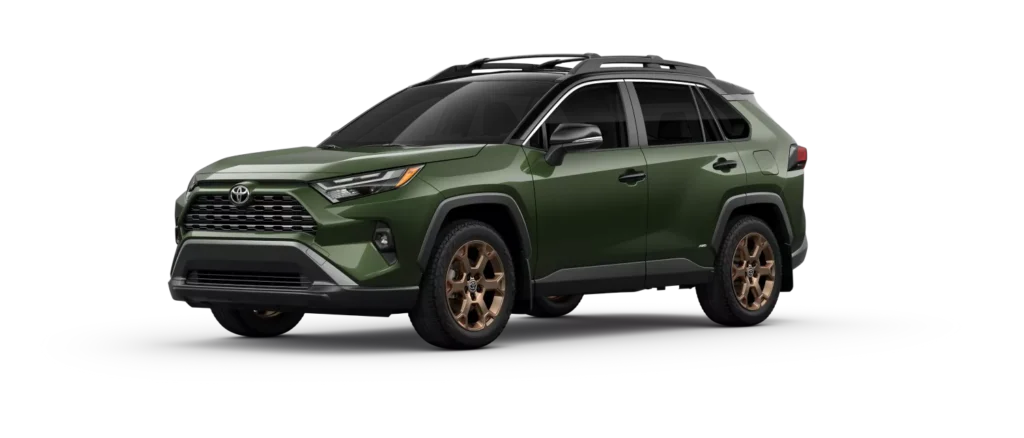
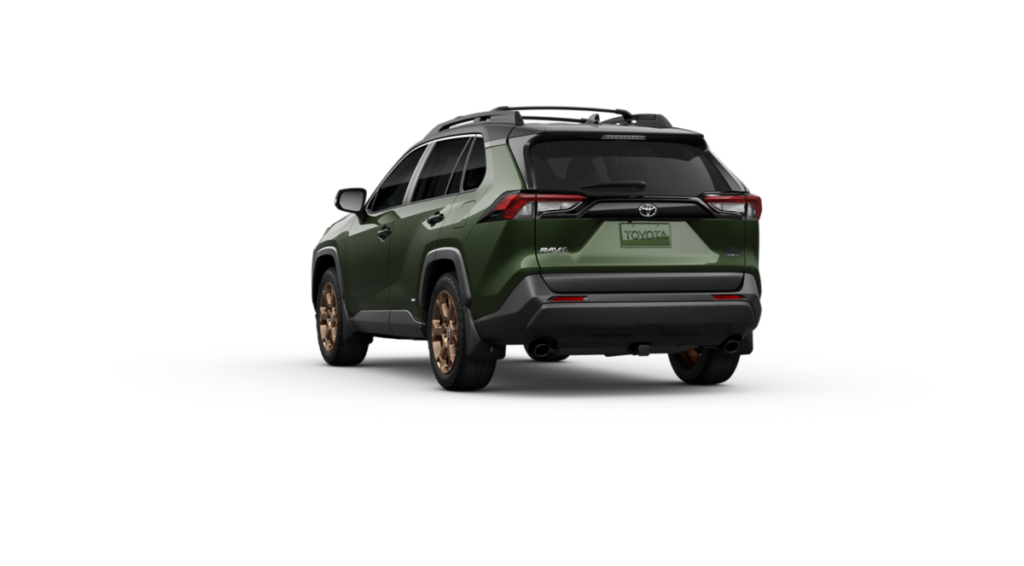
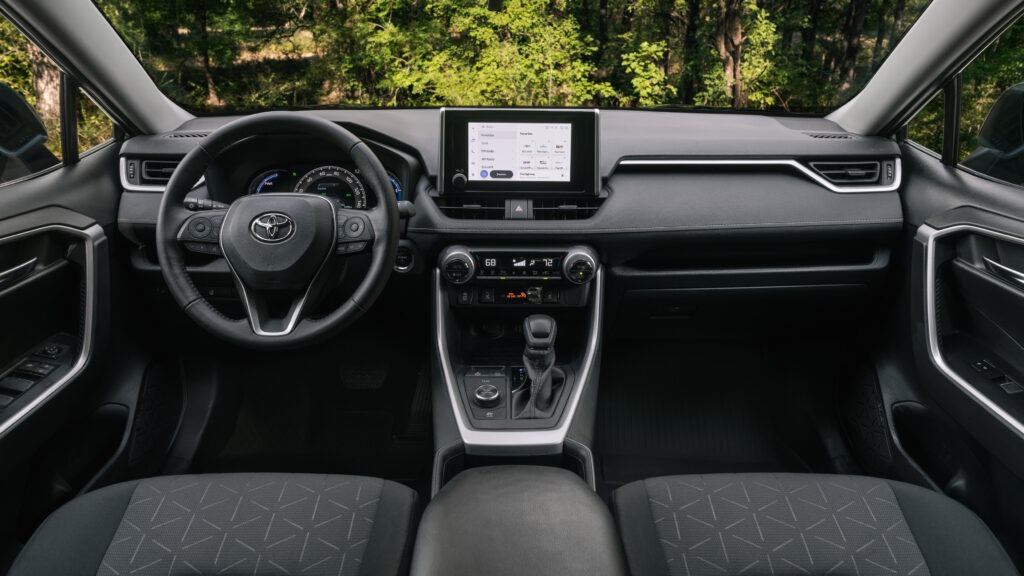
Honda CR-V: Value Proposition
Spacious Comfort and Unmatched Practicality: The CR-V is all about maximizing space. Got a growing family? Need to haul sports equipment or camping gear? The CR-V swallows it all with ease. Its best in class rear legroom means even taller passengers will be comfortable on long journeys, and the cavernous cargo area is ready for anything you throw at it.
Fuel Efficiency without Compromise: Get ready for a smooth and effortless driving experience. The CR-V’s responsive engine and smooth CVT transmission make it a joy to drive around town or on the highway, and the available hybrid powertrain delivers exceptional fuel economy without sacrificing performance. Spend less time at the pump and more time enjoying the ride.
User Friendly Technology and Convenience: Forget complicated menus and frustrating interfaces. The CR-V’s technology is designed to be intuitive and user friendly, so you can stay connected, entertained, and informed without any hassle. From smartphone integration to advanced safety features, the CR-V puts the latest technology at your fingertips.
- Ideal For: The Honda CR-V is the perfect SUV for families, commuters, and anyone who prioritizes maximizing interior space and comfort. If you need a versatile and fuel efficient vehicle that’s easy to drive and packed with user friendly technology, the CR-V is a smart choice. If you don’t require a ton of tech, and just care about space and fuel efficiency, this is the vehicle for you!

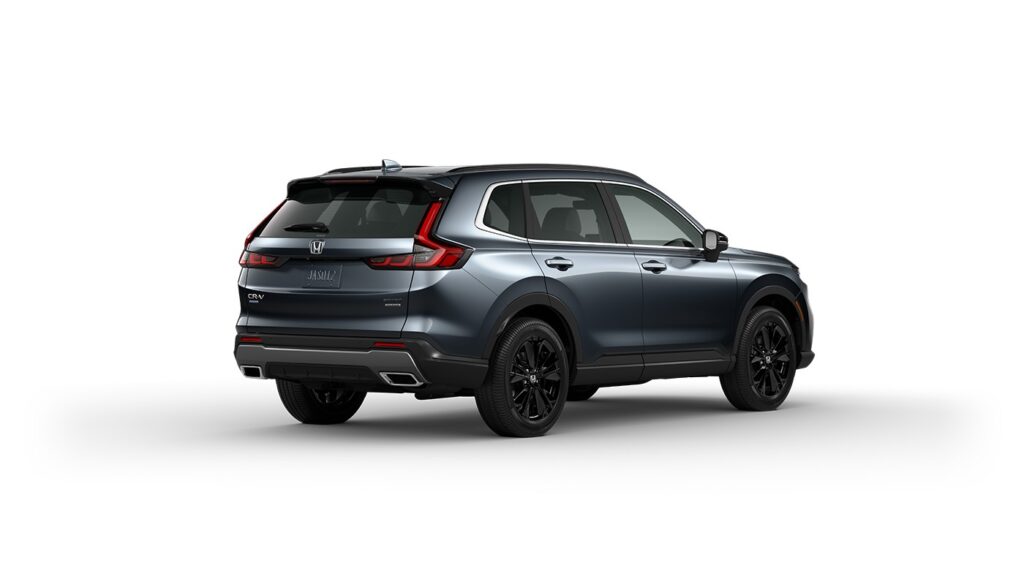
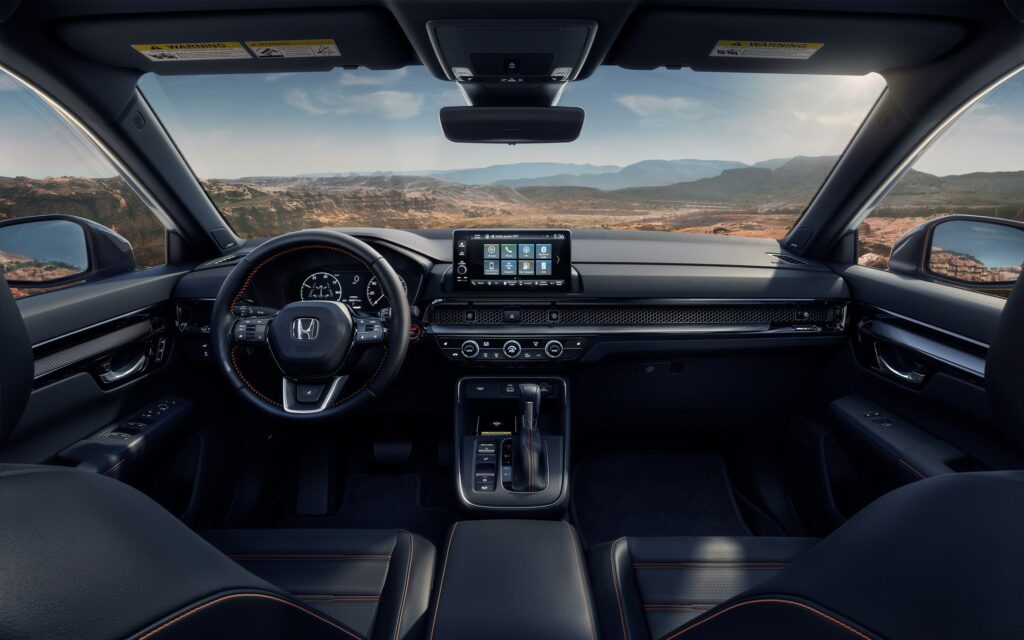
Mazda CX-50: Value Proposition
Stylish Design and Premium Aesthetics: Forget blending in. The CX-50 boasts a design that’s noticeably more stylish and upscale than its competitors. From its sleek exterior lines to its meticulously crafted interior, the CX-50 makes a statement wherever it goes. It’s an SUV that reflects your discerning taste.
Engaging Driving Dynamics and Turbocharged Power: Delivering a more sporty and engaging driving experience than its rivals, thanks to its precise steering and well tuned suspension. The available turbocharged engine on the CX-50 delivers a driving experience that’s more engaging and rewarding than your typical compact SUV.
Elevated Experience with Standard Features: The CX-50 might have a slightly higher starting price, but it comes loaded with premium features that often cost extra on competing models. You’ll enjoy a more elevated experience from day one, without having to add a bunch of expensive options.
- Ideal For: The Mazda CX-50 is the perfect choice for drivers who prioritize style, a premium interior, and an engaging driving experience. If you want a compact SUV that stands out from the crowd and makes every drive more enjoyable, the CX-50 is the answer. It’s perfect for those who appreciate the finer things in life, without sacrificing practicality.

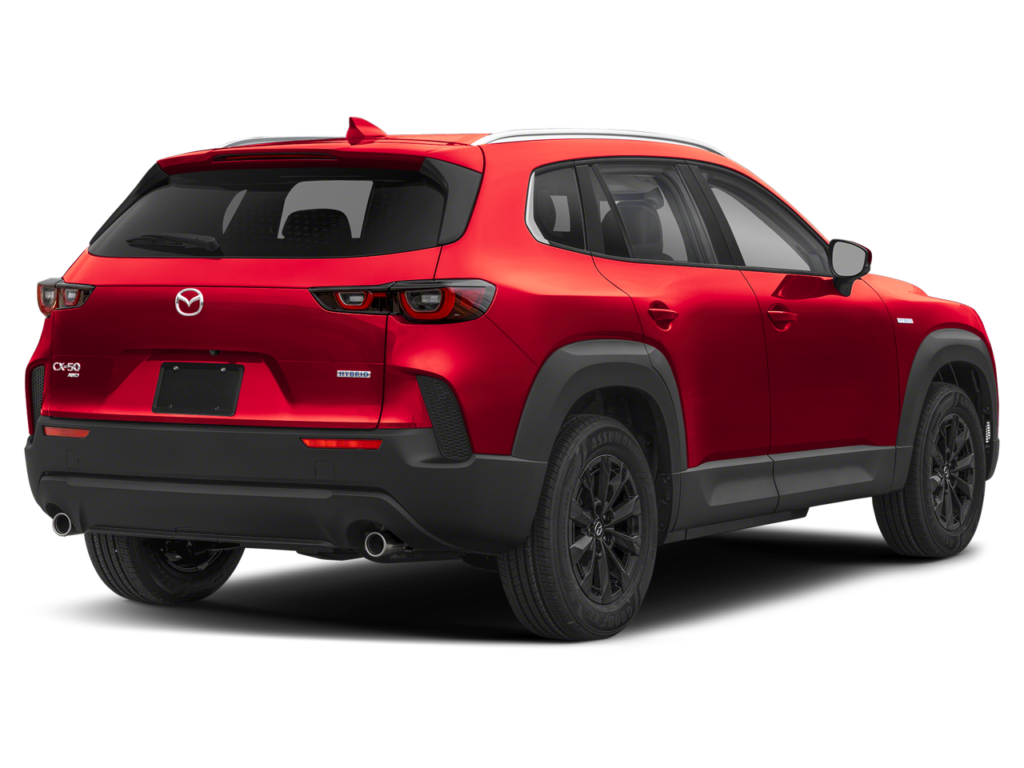
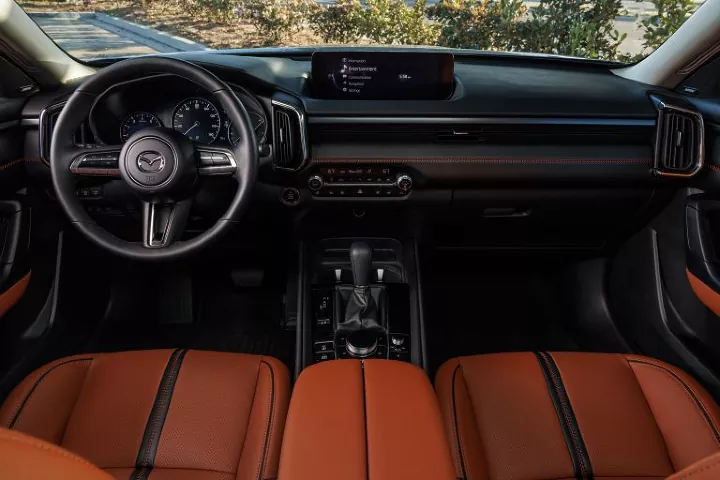
Pros and Cons: A Quick Recap
Toyota RAV4:
Pros: Rugged styling, strong resale value, available hybrid option, good reliability.
Cons: Basic interior, less engaging driving experience than the CX-50, infotainment system lags competitors.
Honda CR-V:
Pros: Spacious interior, excellent fuel economy (especially the hybrid), comfortable ride, user friendly technology.
Cons: Conservative styling, CVT transmission (some may not prefer it), less engaging driving experience than the CX-50.
Mazda CX-50:
Pros: Stylish design, premium interior, engaging driving experience, available turbocharged engine.
Cons: Lower fuel economy, less rear seat legroom, cargo space than the RAV4 and CRV, no hybrid option available.
RAV4, CR-V, and CX-50 Cost Of Ownership
Routine Maintenance Costs - All Models (Unless Specified)
| Service | Interval | Cost (DIY/Independent) | Cost (Dealer) |
|---|---|---|---|
| Oil Change | Every 7,500-10,000 miles | $75 - $150 | $150 - $250+ |
| Tire Rotation | Every 6,000-8,000 miles | $50 - $120 | N/A |
| Brake Inspection | Regularly (e.g., during oil changes) | N/A | N/A |
| Brake Pad Replacement | Every 30,000-70,000 miles | $150 - $350 per axle | $300 - $600+ per axle |
| Fluid Checks & Top-Ups | As needed (coolant, brake, power steering) | $50 - $150 per fluid | N/A |
| Engine Air Filter Change | Every 15,000-30,000 miles | $20 - $50 | $50 - $100 |
| Cabin Air Filter Change | Every 15,000-30,000 miles | $20 - $40 | $50 - $80 |
| Spark Plug Replacement | Every 60,000-100,000 miles | $100 - $300 | $300 - $600+ |
| Transmission Fluid Change | Every 60,000-100,000 miles | $150 - $400 | N/A |
| Hybrid Battery Inspection | Periodic (as part of hybrid maintenance) | $150 - $400 (included in service package) | N/A |
Yearly And 5 Year Costs
| Vehicle | Routine Maintenance Cost (Yearly) | Total Yearly Cost | Estimated 5-Year Maintenance Cost |
|---|---|---|---|
| Toyota RAV4 / Honda CR-V | $600 - $1,000 | $1,200 - $2,500 | $3,000 - $5,000 |
| Mazda CX-50 | $700 - $1,100 | $1,400 - $2,700 | $3,500 - $5,500 |
Depreciation Estimates Over 5 years
(Assuming a new vehicle purchase and 12,000 miles per year)
| Vehicle | Depreciation Rate (5 Years) | Estimated Value After 5 Years | Example Purchase Price: $35,000 |
|---|---|---|---|
| Toyota RAV4 | 30% - 40% | Retains value extremely well | $21,000 - $24,500 |
| Honda CR-V | 35% - 45% | Holds value very well | $19,250 - $22,750 |
| Mazda CX-50 | 40% - 50% | Less historical data, slightly higher depreciation risk | $17,500 - $21,000 |
Insurance Costs (estimates)
(Costs vary based on factors like age, driving record, and location. These are example estimates.)
| Vehicle | Annual Insurance Cost | 5-Year Insurance Cost | Notes |
|---|---|---|---|
| Toyota RAV4 | $1,200 - $1,800 | $6,000 - $9,000 | Generally affordable due to reliability and safety ratings. |
| Honda CR-V | $1,100 - $1,700 | $5,500 - $8,500 | Lower cost due to strong safety features and popularity. |
| Mazda CX-50 | $1,300 - $1,900 | $6,500 - $9,500 | Slightly higher due to sportier image and potential repair costs. |
Fuel Costs (estimated)
(Based on 12,000 miles per year and an average gas price of $4.00/gallon)
| Vehicle | MPG (Combined) | Annual Fuel Cost | 5-Year Fuel Cost |
|---|---|---|---|
| Toyota RAV4 | 27 MPG | $1,777.76 | $8,888.80 |
| Honda CR-V | 29 MPG | $1,655.16 | $8,275.80 |
| Mazda CX-50 | 26 MPG | $1,846.16 | $9,230.80 |
| Toyota RAV4 Hybrid | 40 MPG | $1,200.00 | $6,000.00 |
| Honda CR-V Hybrid | 40 MPG | $1,200.00 | $6,000.00 |
Total Cost Of Ownership (5 years)
(Includes Maintenance, Depreciation, Insurance, and Fuel)
| Vehicle | Estimated 5-Year Cost |
|---|---|
| Toyota RAV4 | $38,388 - $45,388 |
| Honda CR-V | $36,526 - $43,276 |
| Mazda CX-50 | $36,731 - $45,231 |
| Toyota RAV4 Hybrid | $33,300 - $39,300 |
| Honda CR-V Hybrid | $31,776 - $37,776 |
Final Thoughts
Choosing the right compact SUV is a deeply personal decision. Each of these three contenders – the Toyota RAV4, Honda CR-V, and Mazda CX-50 – brings its own unique strengths to the table, catering to distinct priorities and lifestyles. There’s no single “winner,” but rather the best choice for you, based on your specific needs and preferences.
The Toyota RAV4: The Reliable and Sensible Choice
The Toyota RAV4 remains a top pick for a reason: it’s a reliable workhorse that’s built to last. It excels in areas that matter most to many buyers: long term dependability, strong resale value, and a comprehensive suite of safety features. The available hybrid powertrain offers exceptional fuel economy, making it a smart choice for eco conscious drivers. While it may not be the most exciting or luxurious option, the RAV4 delivers peace of mind and a solid value proposition. The TRD Off Road trim offers a dash of ruggedness for those seeking light off road adventures, though it’s important to remember it’s still primarily a road focused vehicle. If you prioritize a no nonsense SUV that will reliably get you where you need to go for years to come, the RAV4 is a compelling choice.
The Honda CR-V: The Master of Practicality and Comfort
The Honda CR-V truly shines when it comes to maximizing interior space and providing a comfortable experience for passengers and cargo. Its roomy cabin, best in class rear legroom, and generous cargo area make it an ideal choice for families and those who frequently haul gear. The smooth and efficient driving experience, particularly with the hybrid model, further enhances its appeal. The CR-V is easy to drive, comfortable on long journeys, and packed with user friendly technology. If practicality, space, and fuel efficiency are your top priorities, the CR-V is hard to beat. It’s a versatile and well rounded SUV that excels at meeting the demands of everyday life.
The Mazda CX-50: The Style Icon and Driver’s Choice
The Mazda CX-50 stands out from the crowd with its striking design, premium interior, and engaging driving dynamics. It’s an SUV that looks and feels more sophisticated than its competitors. The responsive handling, precise steering, and available turbocharged engine make it a joy to drive, appealing to those who appreciate a more connected and rewarding driving experience. While it may not offer the same level of interior space or fuel economy as the RAV4 and CR-V, the CX-50 makes up for it with its style and driving appeal. If you want a compact SUV that turns heads, offers a premium experience, and is genuinely fun to drive, the CX-50 is a standout option. It offers more standard tech, so the added cost is in some ways already included and built into the foundation, making it an attractive price for some drivers.
The Ultimate Verdict:
Choose the Toyota RAV4 if: You want the most reliable and value retaining SUV that offers a practical and dependable experience.
Choose the Honda CR-V if: Your priority is maximizing space, comfort, and fuel efficiency for your family or cargo-hauling needs.
Choose the Mazda CX-50 if: You value stylish design, a premium interior, and a more engaging driving experience above all else.
Ultimately, the best way to decide is to get behind the wheel of each SUV yourself. Test drive the models you’re considering, compare the features that are most important to you, and see which one resonates with your personal needs and preferences. Good luck with your decision!
Toyota RAV4, Honda CR-V and Mazda CX-50 | FAQ
Which SUV is the most reliable?
Historically, the Toyota RAV4 and Honda CR-V have consistently ranked higher in reliability surveys. While Mazda has improved, its long-term reliability data for the CX-50 is still developing.
Which SUV has the best resale value?
The Toyota RAV4 typically holds its value the best, followed closely by the Honda CR-V.
Which SUV is the safest?
All three SUVs come standard with a comprehensive suite of safety features. Check the latest safety ratings from IIHS and NHTSA for the specific model year you’re considering.
Which SUV gets the best gas mileage?
The Honda CR-V Hybrid generally achieves the best fuel economy, followed by the Toyota RAV4 Hybrid. The Mazda CX-50 has lower fuel economy.
What's the difference between the Toyota RAV4 and RAV4 Hybrid?
The RAV4 Hybrid uses a gasoline engine paired with an electric motor to improve fuel economy. It also offers slightly more power than the standard RAV4.
Does the Honda CR-V only come with a CVT transmission?
Yes, the Honda CR-V uses a continuously variable transmission (CVT). While some drivers dislike the feel of a CVT, it contributes to the CR-V’s smooth ride and good fuel economy.
Does the Mazda CX-50 have a touchscreen infotainment system?
Yes, the Mazda CX-50 has a 10.25 inch infotainment display, but it’s primarily controlled using a rotary controller. While it does have a touch screen, it’s disabled when the vehicle is in motion.
Which SUV has the most cargo space?
The Honda CR-V has the largest cargo capacity with both the rear seats up and down. It offers approximately 39.3 cubic feet of cargo space behind the rear seats and 76.5 cubic feet with the rear seats folded down.
Which SUV has the most rear legroom?
The Honda CR-V offers the most rear legroom for passengers, with approximately 41.0 inches of rear legroom.
Unlock accurate valuations for your car’s features in seconds – find out what your options are worth today and in the future.
